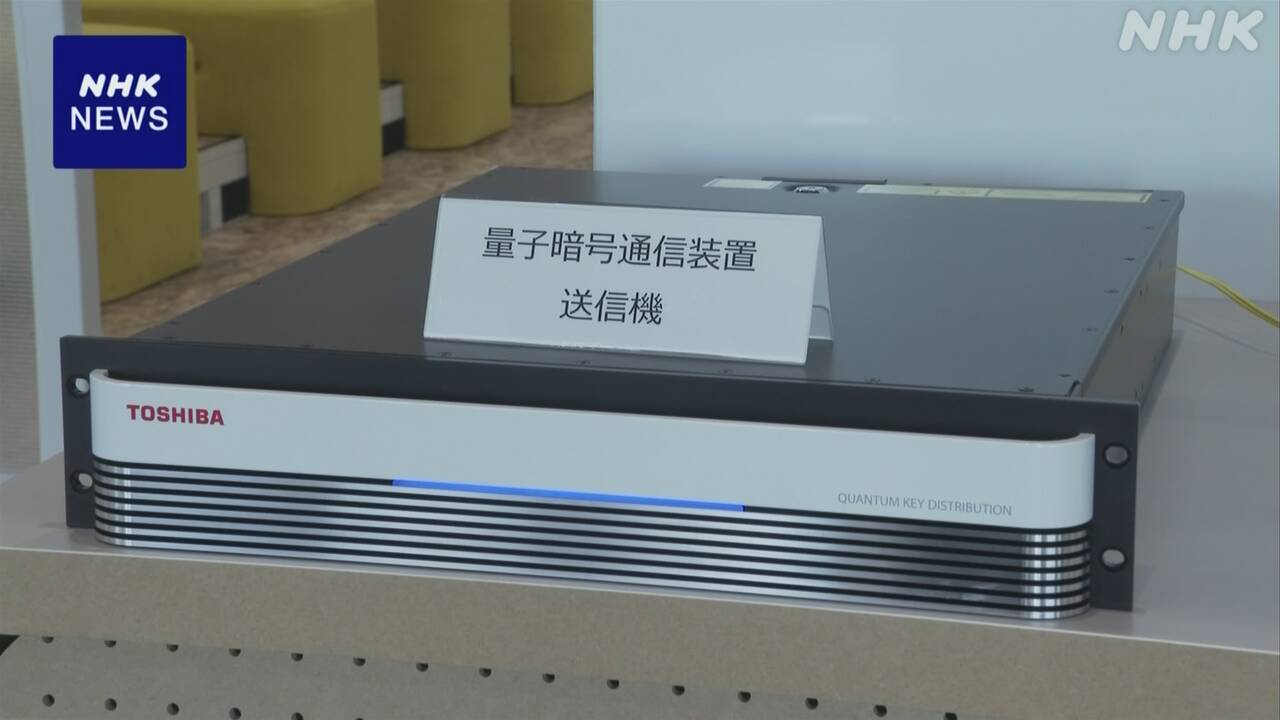The development of quantum cryptography, which is theoretically impossible to decipher, is accelerating worldwide.
It is expected to be used in highly confidential information communications such as finance and medicine, and domestic companies are also rushing to commercialize it.
It has been pointed out that the current cryptographic codes used on the Internet and elsewhere are at risk of being broken with the advent of quantum computers with high computing power.
Quantum cryptographic communication transmits encryption key information on light particles (photons) and shares it with the other party.
Eavesdropping can be detected by taking advantage of the property of quantum mechanics that the state changes when observed, and theoretically it is impossible to decipher it.
Japanese companies are also focusing on development for practical application, and Toshiba has been conducting demonstration tests in London with British financial institutions and others since July last year.
We are already conducting demonstration experiments in the United States, Singapore, and other countries, and are aiming to expand our business overseas.
Ken Saito, director of Toshiba's Information and Communication Platform Research Institute, says, ``This will become an essential technology for safe use in the ever-evolving Internet society.''
In addition, NEC has developed equipment for conducting quantum cryptographic communications for businesses, and will begin providing it this month.
It is envisioned that it will be put to practical use in electronic hospital records, financial transaction data, etc.
In addition to Japanese companies, development of quantum cryptographic communications is progressing in EU countries, as well as investments in China and South Korea, and the movement toward practical use is accelerating worldwide. The focus is on whether they can demonstrate their presence through reinforcement, etc.

